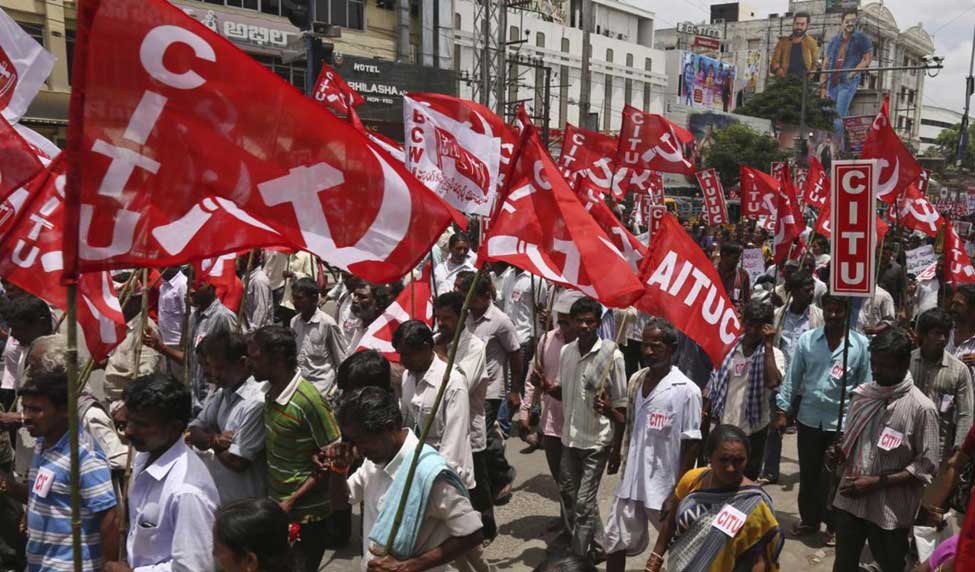Burdened with the impact of note ban, GST, and changes in labour wage laws, trade unions are seeing red over Prime Minister Narendra Modi's recent economic policies.
In what is being viewed globally as an increasing amount of confrontation between the government and the workers unions, all major trade unions, including the RSS-backed Bharatiya Mazdoor Sangh (BMS) has opposed the government's recent policy changes, and have called them 'anti-worker'.
A conglomerate of trade unions headed by the largest union Indian National Trade Union Congress (INTUC), CITU and others, have called for a three-day demonstration during the winter session of parliament, on November 8,9 and 10.
Though BMS is not part of this joint council of trade unions, the union has separately called for demonstrations on November 17 and sought support of all other trade unions from both left and Congress.
"Attacks on labour laws and jobs in India, one of the emerging economies, is unacceptable as a lot hinges on India when it comes to global trade and economy," said Sharan Burrow, general secretary of International Trade Union Confederation, a global labour union body representing at the Geneva-based International labour Organisation (ILO).
"Government must respect that they have the responsibility to hold dialogue with labour unions before taking decisions reversing their fate. We are shocked that India, a nation that once promoted labour welfare and protectionism as advocated by Mahatma Gandhi, today destroy that tradition," said Burrow.
Burrow said that globally they would seek more support for the trade union movement in India. "Trade unions have presented a 12-point agenda to the government to start dialogue. This includes supporting minimum basic wages of Rs 18,000 as demanded by all trade unions," said G. Sanjeeva Reddy, president, INTUC.
Hinting that India can face global actions, Burrow said, that India does not have decent work and that there are 'fundamental violations of labour rights in India'.
"India had globally committed at the ILO and at the G-20 forum to have labour protection measures in place and share its growing wealth with its 500 million plus working population," said Burrow.






